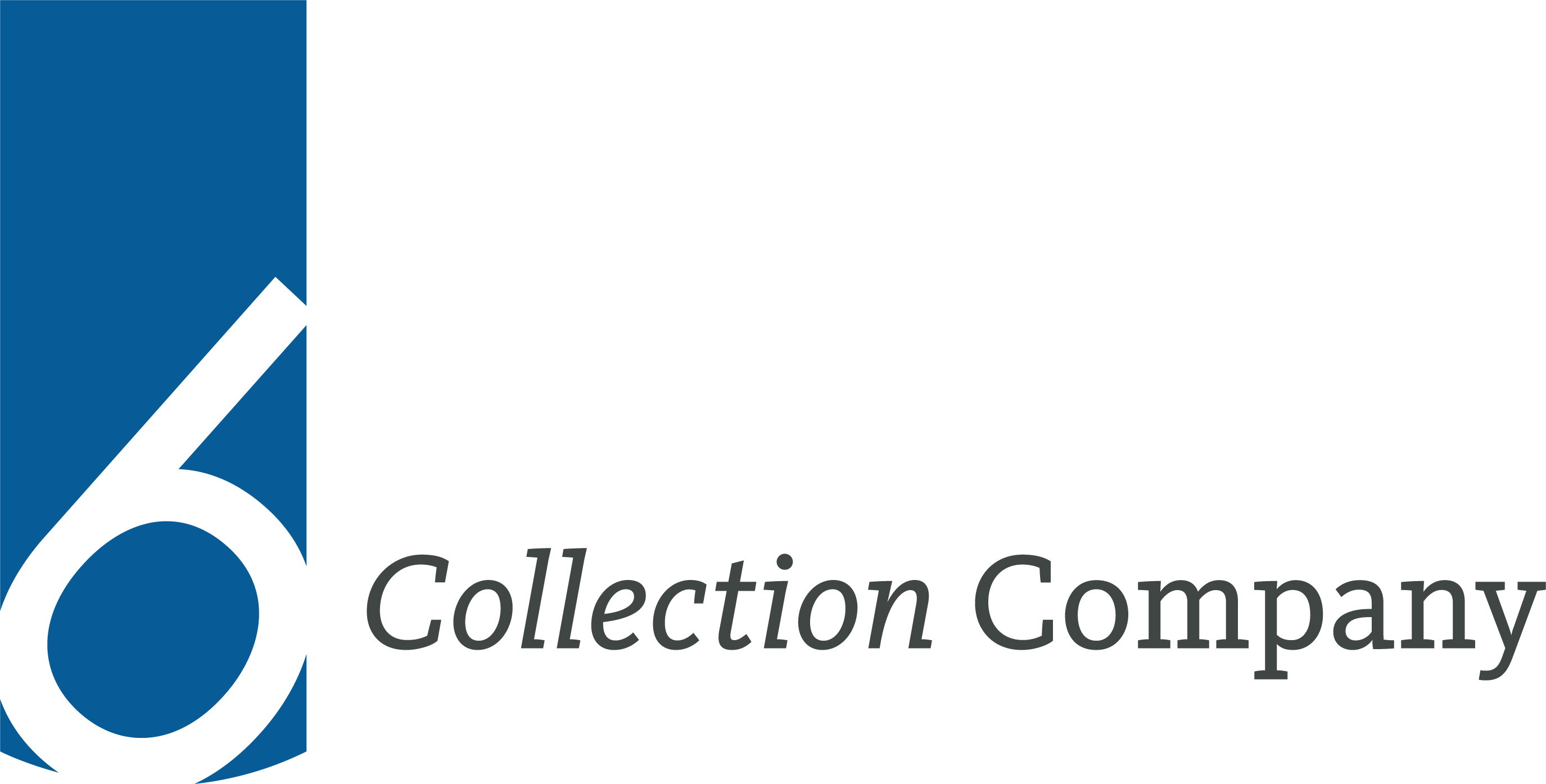Debt collection Ireland: fast and efficient recovery
Do you have a customer in Ireland who hasn’t paid an invoice? Or did your Irish employer not pay your salary? There’s nothing more frustrating than waiting for unpaid bills, especially when your debtor is located outside your own country. What steps can you take to collect your money? What are your rights? How do you get what you’re entitled to?
Do you have a monetary claim in Ireland? Stop waiting for your money. As a debt collection agency Collection Company specializes in international debt recovery. Together with our network of Irish lawyers and legal professionals, we will recover your money.
- Nationwide coverage in Ireland
- One dedicated English speaking contact
- Proven track record
- Tailor-made services for each case
- Expert advice and a transparent process
- 24/7 online access
Specialized in debt collection in Ireland
Creditors with unpaid invoices abroad often quickly give up their claim. They don’t have time to delve into the applicable laws and regulations and are afraid that starting a collection process will be incredibly complicated and time-consuming.
With the help of Collection Company, recovering debts in Ireland is more straightforward than you probably expect. You submit your claim to us, and our international debt collectors will take action right away.
Your dedicated point of contact coordinates the collection process and instructs the local specialists in Ireland. This way, we collect your money quickly and efficiently, without you having to search for bailiffs and legal assistance in Ireland. We can handle the entire debt collection process for you, from the amicable phase to the judicial proceedings.
Throughout the process, you can continuously track the progress in your own Online Cockpit.
Would you like to discuss the likelihood of success for your claim? Contact us for a free consultation.
Transfer your claim now
Has someone in Ireland not paid an invoice you’ve sent? Leave your contact details and we will contact you as soon as possible to discuss your case.

Why choose Collection Company for your debt collection in Ireland?
- Global coverage
- One dedicated English speaking contact
- Experienced debt collection specialists with knowledge of Irish legislation
- Broad network with local lawyers and bailiffs
- Seamless connection from extrajudicial to judicial action
- Effective local approach
- 24/7 tracking through your own Online Cockpit
How does debt recovery work in Ireland?
Like in many other countries, debt collection in Ireland consists of two main phases: the extrajudicial and the judicial.
Extrajudicial debt collection entails all efforts to recover the claim without going to court. This includes sending payment reminders, building a case, and contacting your debtor.
If your debtor still fails to meet their payment obligation after the extrajudicial phase, there is often no other option but to take legal action.
- Upload your invoice online
- We'll start your case
- We'll start with the debt collection process
- Together we decide the best strategy for collecting your debts
- Monitor the status of your case 24/7
- Any questions? Your personal accountmanager will answer them all!
- Your invoice is payed
Extrajudicial debt collection in Ireland
Although Ireland has a fast and efficient legal system, it is generally advisable to initially try to collect your claim through an extrajudicial debt collection process. This way, the relationship with your customer is not immediately disrupted. Moreover, this is usually the fastest method.
If you transfer the claim to us, we will send the reminders on our behalf. This carries a certain weight, and most debtors choose to pay the invoice promptly.
During the extrajudicial debt collection process, we will contact your debtor 16 times over a period of three weeks. We not only send reminders, but also make phone calls and send SMS messages or emails to your debtor. Throughout this process, we gradually increase the pressure on your debtor.
Ultimately, we will send your defaulter a final demand letter. In this letter, we give them one last opportunity to settle the outstanding amount. If they fail to do so within the specified timeframe, we will initiate legal proceedings. This incurs significant costs for your debtor. As a result, most debtors choose to pay the bill in the end.
Judicial proceedings in Ireland
In some cases your defaulter simply refuses to pay, even after extrajudicial actions. If that is the case we can start legal proceedings (in close consultation with you as the creditor). If we do so, we work together with our local lawyers and legal professionals in Ireland.
For a judicial debt recovery, we usually have to submit your claim to the Irish district court (Cúirt Dúiche). If the claim is higher than 15,000 euros, the case will go directly to the circuit court (Cúirt Chuarda). Your debtor must receive a summons (official notice of an impending lawsuit) within 21 days of filing the case.
Afterwards, your debtor has 21 days to pay the bill or file a defense. If they fail to do so, the court will issue a default judgment.
If your debtor contests the case, an investigation phase follows. Both parties can submit and substantiate their positions with evidence. Ultimately, the parties are allowed to verbally explain their positions during a hearing, after which the judge will make a ruling.
European Payment Order (EPO)
For cross-border uncontested claims within the EU, it is also possible to apply for a European Payment Order through an expedited procedure. This is also possible for claims in Ireland.
An uncontested claim is a claim that is not disputed by your debtor (but simply ignored). If you or your company is based in an EU country other than Ireland and your Irish debtor does not respond to your invoices and reminders, we can apply for a European Payment Order on your behalf.
We do this by submitting the designated standard forms to the court in your country. The judge will then issue a European Payment Order.
Your debtor will be notified of the payment order and will then have 30 days to object. If they do not, the payment order becomes immediately enforceable. This means that a bailiff can seize assets from your debtor without the need for an Irish court to review the case.
Are you unsure if your claim qualifies for a European Payment Order? Our specialists are happy to investigate this for you.
European Small Claims Procedure
If you live in an EU country other than Ireland, we could potentially use the European Small Claims Procedure (ESCP). This predominantly written procedure was established to facilitate the collection of small cross-border claims of 5,000 euros or less.
We can file your claim with the court in your own country. This can be done online. The rest of the process is completely digital. Your debtor will be notified of your claim and will get the opportunity to submit evidence. The judge often arranges a hearing (via video call).
Based on this information, the judge will make a ruling. The judgment is enforceable throughout the EU, except in Denmark.
Arbitration and Mediation
Irish courts are increasingly encouraging alternative forms of dispute resolution such as arbitration or mediation.
Arbitration is a form of private dispute resolution where the case is not resolved by the court but by an arbitrator or arbitration tribunal. An arbitral award has the same status as a court judgment and is binding. The advantage of arbitration is that it is a much faster process.
Mediation is a process of facilitated negotiation led by a mediator. The mediator tries to bring both parties closer together. If you and your debtor reach an agreement, the mediator sets out a draft agreement that becomes binding as soon as both parties have signed it. If your debtor fails to comply with the agreement, a bailiff in Ireland can enforce it.
To resolve a case through arbitration or mediation, both parties must agree to this. That can also be done before a conflict arises, for example, by including a provision in the terms and conditions.
Enforcement proceedings in Ireland
A favorable ruling from the judge doesn’t mean that you immediately receive your money and that the debt collection process is over.
If your debtor refuses to pay, even after a court ruling, a European Payment Order, or an arbitral award, we can file the outstanding debt with the district court. This register is public, which negatively affects the creditworthiness of your debtor. This means that your debtor will have difficulty borrowing money in the future.
Next, we can proceed with the execution of the judgment.
For this, we’ll have to return to the court and ask the judge to enforce the title. Based on the previous judgment, the court instructs the sheriff or county registrar to put an attachment on income, bank accounts, real estate, or other assets of your debtor. The sheriff can auction seized items, and pay you from the proceeds. The sheriff or county registrar can also put an attachment on outstanding claims that your debtor has himself.
At the request of the creditor, the sheriff or county registrar can also enforce a repayment plan.
What does the debt recovery process look like in Ireland?
Step 1
We start an amicable recovery procedure. Over a period of three weeks, we reach out to your debtor at least 16 times through reminders, phone calls, and text messages. During this time, we gradually increase the pressure.
Step 2
If the extrajudicial collection does not have the desired effect, we can file a lawsuit against your debtor at the Irish court.
Step 3
With a judgment from the Irish court, the sheriff or county registrar can seize the assets of your debtor to recover the money you’re owed.
Interim remedies in Ireland
Prior to a judicial procedure it is possible to take preliminary measures. We can for example ask the judge to put a temporary attachment on certain assets of your debtor to prevent them from being sold or hidden.
To obtain permission for such interim measures, we need to submit a request to the court where we file your claim. We’ll have to prove that there is a risk of not being able to recover anything from your debtor in the future, if the court rules in your favor. We will need to make it plausible that your claim has a good chance of success and that it’s clear that your debtor is trying to avoid payment.
Interim attachment is primarily a precautionary measure. At the same time, it is also a way to put pressure on your debtor. During the attachment, the debtor cannot dispose of their assets. Many defaulters prefer to get rid of the attachment as soon as possible and therefore decide to make the payment.
Bankruptcy
If you have a claim of more than 20,000 euros against your defaulter, it is possible to file for your debtor’s bankruptcy.
A bankruptcy petition is a strong leverage tool. When your debtor is declared bankrupt, they will lose all their assets. Most debtors will do everything to prevent this from happening.
In practice, most debtors still pay once their bankruptcy is filed. If that is the case, we can withdraw the file for bankruptcy.
To file for the bankruptcy of your debtor, we need to file a petition with the Irish High Court (An Ard-Chúirt). The application must be accompanied by a sworn statement outlining the debt.
Once the judge declares your debtor bankrupt, a trustee will be appointed. They will liquidate the debtor’s assets, and the proceeds will be used to pay off the creditors.
Advice about your case?
Submit your contact details and one of our debt collection specialists will contact you immediately!

Legal areas debt collection Ireland
Are you owed money from Ireland? For example, due to a business customer not paying an invoice? Or from an indemnification? Perhaps your Irish employer didn’t pay your salary?
At Collection Company, we recover all types of claims in Ireland. We specialize in debt collection within the following legal areas.
- Construction law
- Rental and leasing
- Buying and selling
- Labor law
- Agency agreement
- Transportation
- Damages and wrongful acts
We work not only directly for clients but also for intermediaries such as law firms and accounting firms.
How else may we help you in Ireland?
- Reliable advice on contracts and terms
- Credit information on companies in Ireland
- Disputes regarding retention of title and right of reclamatio
- Mediation in order to reach private agreements and settlements
Submit your claim in Ireland with us now
Fill out our debt recovery registration form to submit your claim. Do you rather get personal advice from a debt collection specialist first? Call us at 070 – 762 0330 or send us an email.
Free advice on debt collection in Ireland?
Submit your contact details and one of our debt collection specialists will contact you immediately!

FAQ: Frequently asked questions about debt collection in Ireland
FAQ: What do we need for a debt recovery in Ireland?
If we initiate debt collection in Ireland on your behalf, we would like to receive all documents that can support your claim. These may include invoices and the purchase agreement.
We understand that a file may not always be complete. Even if you have no documents to support your claim, you can start a debt collection with us. You can discuss with our debt collection expert how we can prove your claim.
If possible, we kindly ask you to provide the following documents:
- Contracts or agreements, emails discussing the arrangements, a fax confirmation, etc.
- A summary of the agreement
- Invoices
- Payment reminders
- Terms and conditions
- Proof of delivery
FAQ: Is a retention of title valid in Ireland?
If you supply goods on credit to customers in Ireland, it is advisable to include a retention of title clause in the terms of the agreement. If you fail to do so, ownership of the goods will pass to the buyer upon delivery. With a retention of title clause, the buyer only becomes the official owner of these goods once the full agreed price has been paid.
According to Irish law, the delivered goods must be traceable and identifiable in order to invoke the retention of title. This means that an extended retention of title for items that have been incorporated into new products is not valid.
FAQ: What is the statute of limitations for monetary claims in Ireland?
In Ireland, there is a statute of limitations for monetary claims. The limitation period varies for different types of cases. For business disputes, there is a limitation period of 6 years. For disputes about land ownership, the limitation period is 12 years.
It is important to take legal action before the applicable limitation period expires. Our specialists can help you determine the applicable limitation period for your claim.
FAQ: Why not hire a debt collection agency in Ireland?
If you transfer your claim to a debt collection agency in Ireland, you are required to communicate in Irish, often regarding complex legal matters. Furthermore, most debt collection agencies do not have lawyers or legal professionals who can initiate legal proceedings. If an amicable collection does not yield the desired results, you will have to find legal assistance yourself.
At Collection Company, we can take care of the complete debt collection process for you, both amicably and judicially. In doing so, we work closely with legal professionals and lawyers in Ireland. As a creditor, you communicate with one dedicated liaison.
Why 40.000 customers tried our services
- The #1 collection company in the Netherlands and abroad
- Regional & local specialists
- Years of experience with international invoices
- Your own personal contact
- Extensive advice on the legal process
- Monitor the status of your case 24/7
Meet our specialized legal team
- Joost Konings LLMLaw expert
- May Leung LLMLaw expert
- Wesley Boeters LLMInterim lawyer






